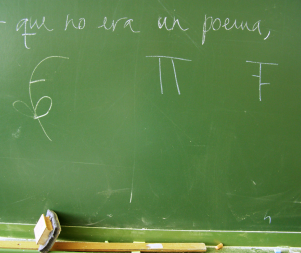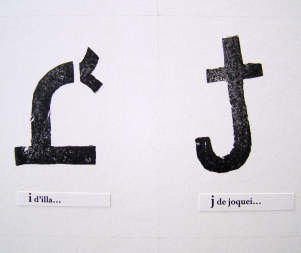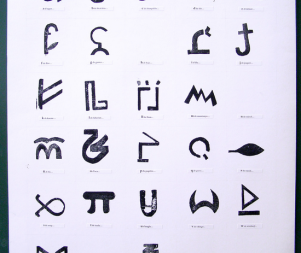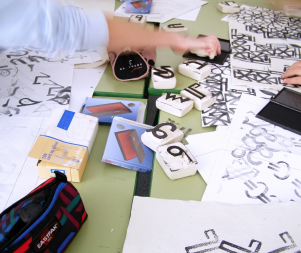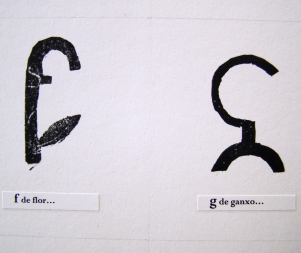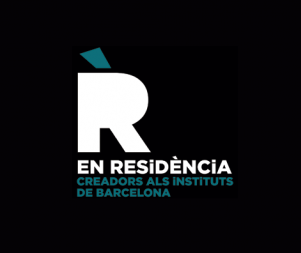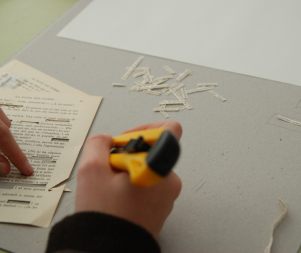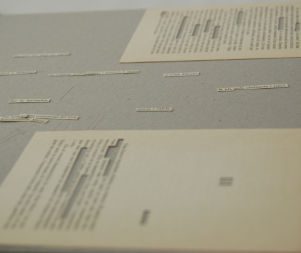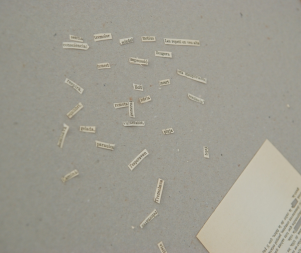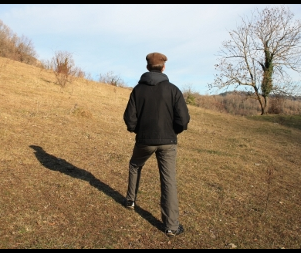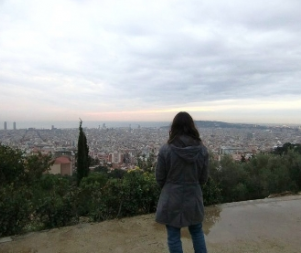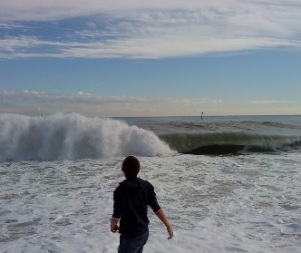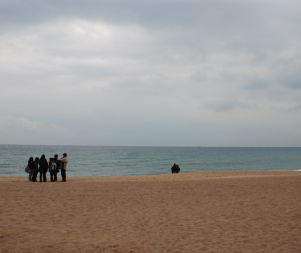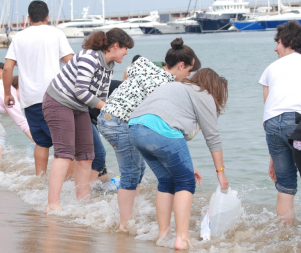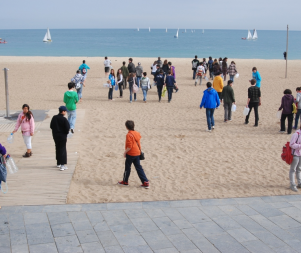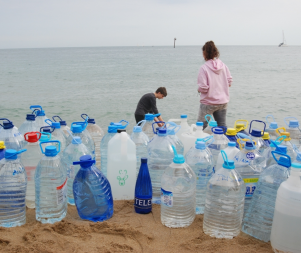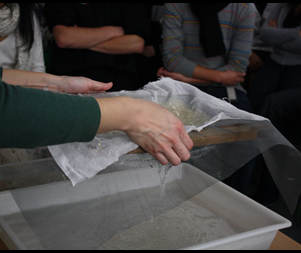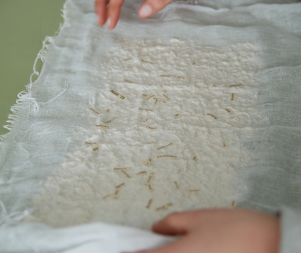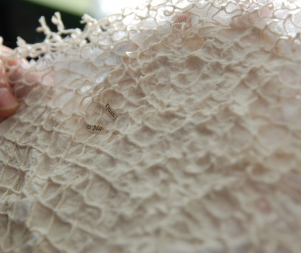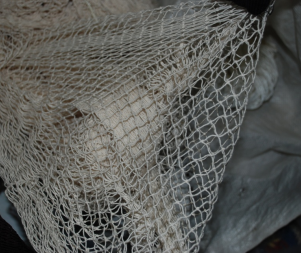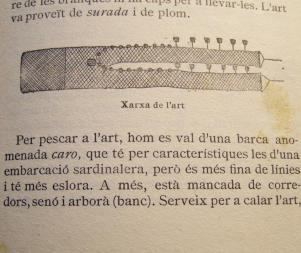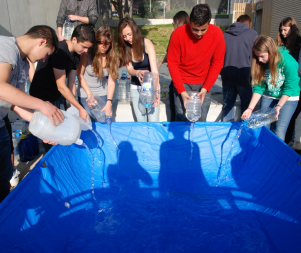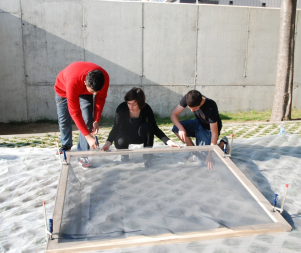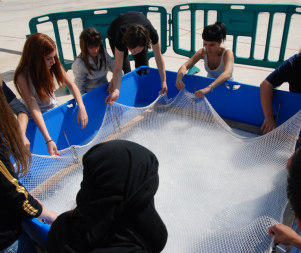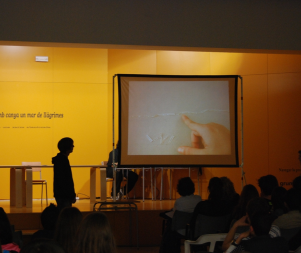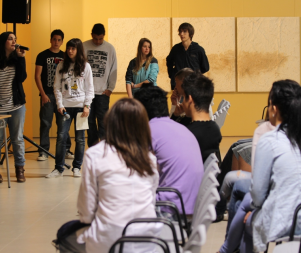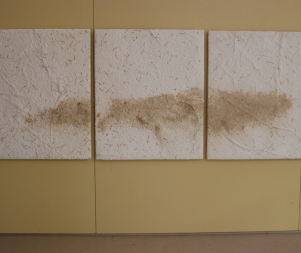- 14th EDITION 2022 / 2023
- 13th EDITION 2021 / 2022
- 12th EDITION 2020 / 2021
- 11th EDITION 2019 / 2020
- 10th EDITION 2018 / 2019
- 9th EDITION 2017 / 2018
- 8th EDITION 2016 / 2017
- 7th EDITION 2015 / 2016
- 6th EDITION 2014 / 2015
- 5th EDITION 2013 / 2014
- 4th EDITION 2012 / 2013
- 3rd EDITION 2011 / 2012
- 2nd EDITION 2010 / 2011
- 1st EDITION 2009 / 2010
Mar Arza IN RESiDENCE at the School Narcís Monturiol
INVENTING ALPHABETS
After the pupils and Mar Arza have discussed what art is, they build a landscape of words from papers on which they translate the landscape observed from words. The following sessions are devoted to inventing an alphabet for the group.
WRITING IN OUR OWN ALPHABET
The alphabet created is used to transcribe poems and texts.
CUTTING OUT WORDS AND BUILDING NEW MEANINGS
Interesting words are cut out from the pages of second-hand books. Next, some of these words are joined with others or linked to images. The process of creating landscapes of words begins.
LANDSCAPES
Over the holidays, the participants take photos of their favourite landscapes. When they return, they pool the images and decide that the final work should revolve around the theme of the sea, a landscape chosen by many members of the group. They will create a sea of words...
OUTING TO THE SEA AND SECOND-HAND BOOKSHOPS
An outing to the sea and the Barceloneta neighbourhood in search of inspiration, where the group pays particular attention to the fishermen’s nets. Next, they visit several second-hand bookshops to find books in which the sea plays a leading role. Many of the words in the final work will be taken from the pages of these books.
SEAWATER
We need many liters of sea water for the big final fishing.Students from 3 & 4 ESO institute loaded with 90 bottles of water on the beach of Barceloneta. Returning almost 500 liters of seawater.
Mar Arza makes a video.
VIDEO: SEA WATER
Video of the visit to the sea, created by Mar Arza.
FISHING FOR WORDS
First tests with a view to making the final work. Using fragments from different types of nets, the group fishes for words that were cut out over the last few months and are now deposited on the hand-made paper.
CUTTING OUT WORDS AND BUILDING PHRASES (FISHING FOR LOVE)
The results from the earlier “fishing” tests are observed, and there is discussion about the simile between the art of fishing and the art of writing. The idea of “fishing for love” becomes central to the work. In groups, the pupils continue to cut out words, which are classified into two large columns: on the one hand, positive feelings linked to the word “love”; and, on the other, words linked to “fishing”. Once they have made the two columns, the pupils build poetic phrases that link these two worlds. A lot of words are needed for the work, and all pupils from the fourth year of ESO secondary and the Catalan language and literature baccalaureate courses take part in the activity.
THE GREAT FINAL FISHING
Three frames are made. In a pool filled with seawater, one frame is placed with the mesh and the old and new paper pulp. Next, the fishing net is cast to “catch” the poetic phrases created using the words cut out from second-hand books. This action is repeated three times. Once the fishing is over, the three frames are left to dry in the sun.
EXHIBITION AND PRESENTATION
The triptych Peixos d’estima [Love fish] is presented during celebrations for the thirtieth anniversary of the Feast of Saint George at Institut Narcís Monturiol, and a group of pupils describes the creative process behind the work.

